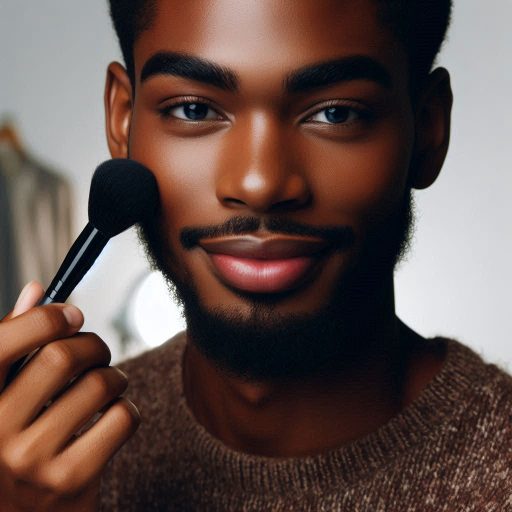Introduction
The fashion industry is dynamic and highly competitive.
Each year, countless aspiring designers and fashion enthusiasts aim to make their mark.
This fast-paced world requires creativity, innovation, and a strong network.
Despite its allure, breaking into the fashion industry is challenging.
Many believe a degree is essential to enter fashion.
This common belief stems from traditional views that formal education equals expertise.
Fashion schools offer valuable skills and connections.
However, a degree is not the only path to success.
Many successful fashion professionals have built careers without formal education.
This post explores alternative strategies for entering the fashion world without a degree.
First, we’ll discuss the importance of gaining practical experience through internships and freelance work.
Next, we’ll highlight the value of building a strong personal brand and portfolio.
Finally, we’ll cover networking and leveraging social media to create opportunities.
Breaking into fashion without a degree requires determination and creativity.
Practical experience and a robust network often outweigh formal qualifications.
By focusing on hands-on experience, self-promotion, and industry connections, you can carve out a successful career in fashion.
Develop your skills and knowledge
Breaking into the fashion industry without a degree can be a daunting task, but with the right skills and knowledge, it is definitely possible.
Here are some ways you can develop your skills and knowledge to increase your chances of success.
Attend Workshops, Seminars, and Online Courses
One of the best ways to learn about the fashion industry is by attending workshops, seminars, and online courses.
These can provide valuable insights into different aspects of the industry, from design to marketing.
Transform Your Career Today
Unlock a personalized career strategy that drives real results. Get tailored advice and a roadmap designed just for you.
Start NowLook for events and courses that are relevant to your interests and goals.
Network with Professionals
Networking is key in any industry, and the fashion industry is no exception.
By networking with professionals in the field, you can gain valuable insights, knowledge, and connections that can help you break into the industry.
Attend industry events, participate in online forums, and connect with professionals on social media platforms like LinkedIn.
Learn About Different Aspects of the Fashion Industry
To succeed in the fashion industry without a degree, it’s important to have a well-rounded understanding of different aspects of the industry.
Learn about design, merchandising, marketing, and production to gain a comprehensive view of how the industry works.
This knowledge will help you make informed decisions and stand out from the competition.
By developing your skills and knowledge through workshops, networking, and learning about different aspects of the industry, you can increase your chances of breaking into the fashion industry without a degree.
Remember to stay motivated, stay informed, and never stop learning!
Read: Historical Art Conservation Success Stories
Build a strong portfolio
Showcase your work through an online portfolio or social media platforms
A robust portfolio is your key to breaking into the fashion industry without a degree.
Start by showcasing your work through an online portfolio or social media platforms.
An online portfolio provides a professional space to display your best work.
Use platforms like Instagram, Behance, or your own website to reach a wider audience.
Each project should highlight your unique style and skills.
Include a variety of projects to demonstrate your skills and creativity
Include a variety of projects to demonstrate your skills and creativity.
Showcasing different types of work, such as sketches, completed garments, and styling projects, reveals your versatility.
Potential clients or employers want to see a range of capabilities.
Include both finished and in-progress work to give a comprehensive view of your process.
Showcase Your Business Today
Reach thousands of readers actively exploring professional services. Publish your business profile and grow your audience now.
Publish NowUpdate your portfolio regularly with new projects and experiences
Regularly update your portfolio with new projects and experiences.
As you gain more experience, replace older work with newer pieces that reflect your growth.
This keeps your portfolio fresh and relevant. An updated portfolio also shows that you are active and engaged in the industry.
By maintaining an impressive and diverse portfolio, you can effectively capture the attention of fashion professionals and showcase your talent.
Read: Challenges Faced by Art Conservators/Restorers
Gain Experience Through Internships and Volunteer Work
Breaking into the fashion industry can be challenging without a degree, but gaining hands-on experience is crucial.
Internships and volunteer work offer valuable opportunities to build your skills and network.
Here‘s how to maximize these experiences.
Apply for Internships at Fashion Companies or with Fashion Designers
Start by applying for internships with fashion companies or designers.
Look for openings at both established brands and emerging designers.
Internships provide a firsthand look at the industry, allowing you to learn the ropes.
You‘ll get to work on real projects, from assisting with design to handling administrative tasks.
This practical experience is invaluable.
It helps you understand the daily workings of the fashion world and develop essential skills.
Volunteer for Fashion Events, Fashion Shows, or Fashion Magazines
Volunteering at fashion events, shows, or magazines is another excellent way to gain experience.
Look for opportunities to assist with event planning, backstage operations, or editorial tasks.
These roles expose you to different aspects of the fashion industry.
Volunteering also helps you build a diverse portfolio.
Working at events or magazines allows you to interact with industry professionals, expanding your network.
Use These Opportunities to Learn, Network, and Gain Real-World Experience
Internships and volunteer work are not just about gaining experience; they are also about learning and networking.
Be proactive in seeking feedback from supervisors and mentors.
Attend industry events, make connections, and follow up with people you meet.
Use these opportunities to build relationships that could lead to future job opportunities.
Gaining real-world experience through these roles enhances your resume and helps you stand out in a competitive field.
By leveraging internships and volunteer work, you can break into the fashion industry and build a foundation for a successful career.
Read: How to Create Stunning Fashion Editorials

Create your own opportunities
Start a fashion blog or YouTube channel to showcase your personal style and knowledge
Breaking into the fashion industry without a degree requires creativity and initiative.
One effective way to start is by creating your own fashion blog or YouTube channel.
These platforms allow you to showcase your personal style and share your fashion knowledge with a wider audience.
Regularly post high-quality content, such as outfit inspirations, fashion tips, and trend analyses.
This will help you build a loyal following and attract attention from industry professionals.
Launch your own fashion line or collaborate with local designers
Another option is to launch your own fashion line.
Begin with small, manageable projects like custom clothing or accessories.
Collaborate with local designers to gain experience and build your portfolio.
Look for opportunities to feature your designs in local boutiques or fashion shows.
Collaborations can provide valuable exposure and credibility in the fashion community.
Attend fashion events, trade shows, and networking events to meet potential collaborators and clients
Attending fashion events, trade shows, and networking gatherings is also crucial.
These events offer excellent opportunities to meet potential collaborators, clients, and industry influencers.
Engage in conversations, exchange contact information, and express your passion for fashion.
Networking helps you stay updated on industry trends and opens doors to potential partnerships and job opportunities.
Showcase Your Business Today
Reach thousands of readers actively exploring professional services. Publish your business profile and grow your audience now.
Publish NowBy starting a fashion blog or YouTube channel, launching your own line, and actively participating in fashion events, you create your own path in the industry.
Each step helps build your reputation and expand your network.
Persistence and creativity are key to breaking into fashion without a formal degree.
Read: Internships for Aspiring Art Conservators/Restorers
Stay Updated on Industry Trends and Developments
Breaking into the fashion industry without a degree requires staying ahead of trends and understanding industry shifts.
Here‘s how you can stay updated:
Follow Fashion Magazines, Websites, and Social Media Accounts
Fashion magazines and websites are gold mines for industry news and trends.
Subscribe to leading magazines like Vogue or Harper‘s Bazaar.
Visit fashion-focused websites regularly for updates on collections, designers, and trends.
Follow prominent fashion influencers and industry professionals on social media platforms.
Instagram, Pinterest, and TikTok are excellent for discovering emerging styles and trends.
Attend Fashion Shows, Exhibitions, and Industry Events
Fashion shows and exhibitions offer a firsthand look at the latest collections and trends.
Many events are open to the public or offer affordable tickets.
Attend local fashion shows to network and gain insights into industry standards.
Industry events, such as fashion week or trade shows, provide valuable networking opportunities and expose you to cutting-edge trends.
Participating in these events helps you build connections and gain industry knowledge.
Stay Informed About Current and Future Trends in Fashion
Understanding current fashion trends is crucial for breaking into the industry.
Read trend reports and fashion forecasts to anticipate future directions.
Follow trend forecasting agencies like WGSN or Trendstop.
Pay attention to seasonal trends, color palettes, and popular styles.
Being informed allows you to align your work with industry expectations and demonstrate a strong grasp of fashion dynamics.
By consistently following these strategies, you‘ll stay relevant and informed.
This proactive approach helps you build a solid foundation in the fashion industry, even without a formal degree.
Discover More: Networking Tips for Furniture Designers
Develop Strong Communication and Interpersonal Skills
Breaking into the fashion industry without a degree requires more than talent and passion.
Developing strong communication and interpersonal skills is essential.
Build Relationships with Professionals in the Industry
Start by connecting with industry professionals.
Attend fashion events, trade shows, and local meetups.
Engage actively with people you meet.
Building genuine relationships can open doors to opportunities.
Remember, networking isn‘t just about collecting contacts; it‘s about forming meaningful connections.
Offer help and support when you can, and show genuine interest in others‘ work.
This builds trust and can lead to valuable advice and introductions.
Practice Effective Communication Through Networking and Collaborations
Effective communication is key in fashion.
Practice articulating your ideas clearly and confidently.
When networking, focus on active listening.
Understand what others are saying and respond thoughtfully.
Collaborate with peers on projects to refine your skills.
Effective communication helps you make a memorable impression and showcase your enthusiasm and professionalism.
Be concise and direct in your interactions to ensure your message is clear and impactful.
Showcase Your Business Today
Reach thousands of readers actively exploring professional services. Publish your business profile and grow your audience now.
Publish NowBe Proactive in Reaching Out to Potential Mentors and Collaborators
Seek out mentors who can guide you through the industry.
Research professionals whose work you admire.
Reach out with a personalized message explaining your admiration for their work and your desire to learn.
Be polite and respectful, and make it easy for them to respond.
Proactively seek collaborations to gain experience and visibility.
Approach potential collaborators with clear ideas and a strong pitch.
Demonstrating initiative can make you stand out and create new opportunities.
In summary, building strong communication and interpersonal skills is crucial.
By cultivating relationships, practicing effective communication, and being proactive, you can successfully navigate the fashion industry and advance your career.
Conclusion
Breaking into the fashion industry without a degree is challenging but entirely feasible.
Emphasizing key points can guide your path to success.
Firstly, leverage relevant experience.
Gain hands-on experience through internships, freelance projects, or volunteering.
Build a portfolio that showcases your skills and creativity.
Real-world experience often outweighs formal education in fashion.
Next, prioritize networking.
Connect with industry professionals through social media, fashion events, and industry forums.
Building relationships with insiders can lead to opportunities that a degree alone might not offer.
Develop a strong personal brand.
Use social media to showcase your work and style.
A unique and consistent online presence can attract attention from fashion industry leaders and potential employers.
Stay updated on industry trends.
Follow fashion blogs, magazines, and attend shows to understand current trends and consumer preferences.
This knowledge will help you align your work with market demands.
Lastly, be persistent.
The fashion industry is competitive and often requires resilience.
Embrace rejection as part of the journey and use it to improve.
Continuous effort and adaptability will eventually lead to success.
Pursue your passion relentlessly and put in the hard work necessary to achieve your goals.
Passion fuels creativity and drives you to overcome obstacles.
Remember, success in fashion doesn‘t depend on a degree but on your determination, creativity, and networking skills.
Determination, creativity, and networking are crucial factors. Keep pushing forward, and stay committed to your vision.
With these qualities, you can carve out a successful career in the fashion industry, even without a degree.
[E-Books for Sale]
The Big Book of 500 High-Paying Jobs in America: Unlock Your Earning Potential
$19.99 • 500 High-Paying Jobs • 330 pages
Explore 500 high-paying jobs in America and learn how to boost your career, earn more, and achieve success!
See All 500 High-Paying Jobs of this E-Book
1001 Professions Without a Degree: High-Paying American Jobs You Can Start Now
$19.99 • 1001 Professions Without a Degree • 174 pages
Discover 1001 high-paying jobs without a degree! Unlock career tips, skills, and success strategies for just $19.99!




